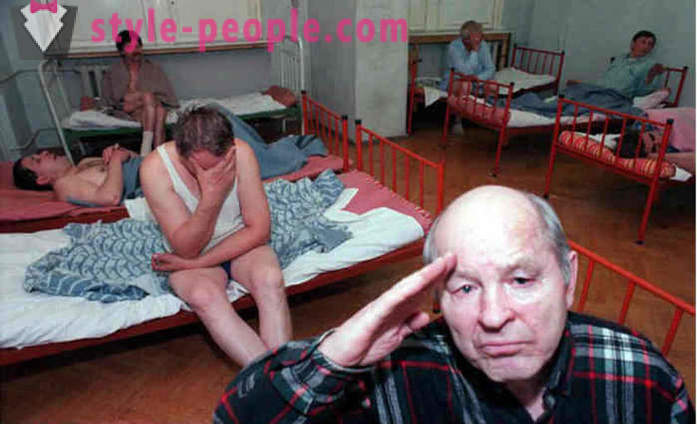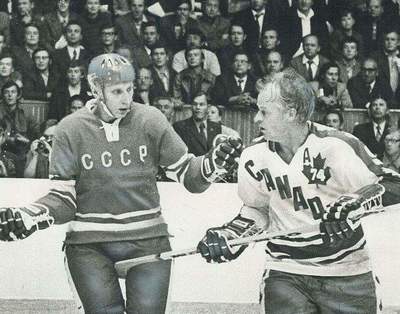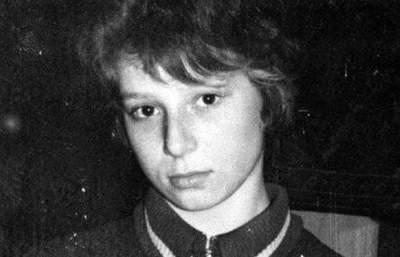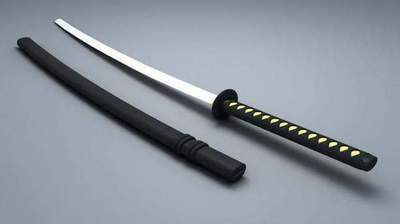Detox Soviet era
• Detox Soviet period
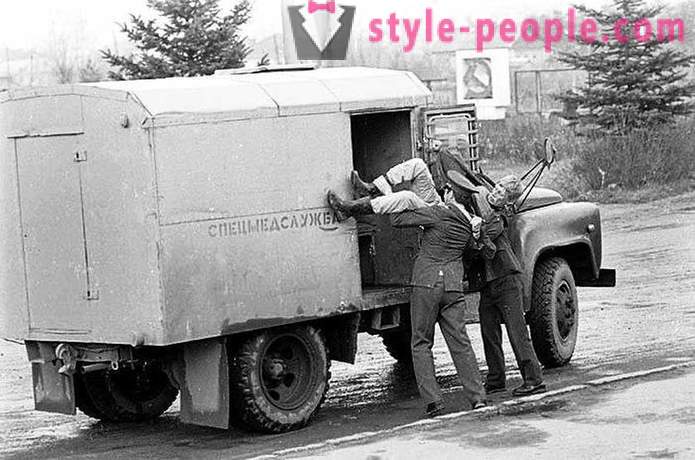
every Soviet citizen was ordered to maintain a high moral character. But not everything is a prescription performed. Personality, to drink alcoholic beverages in public places, not only keeping up with the building of communism, but also interfere with other concentrate on the essentials.
For efficient cleaning of streets of drunks in the early 30-ies around the country began to open sobering-up stations, some of which have survived even until the XXI century. Experienced profligate not mind to spend the night in the "receiver" did not have, but for ordinary citizens visit the sobering-up could result in serious problems at work.
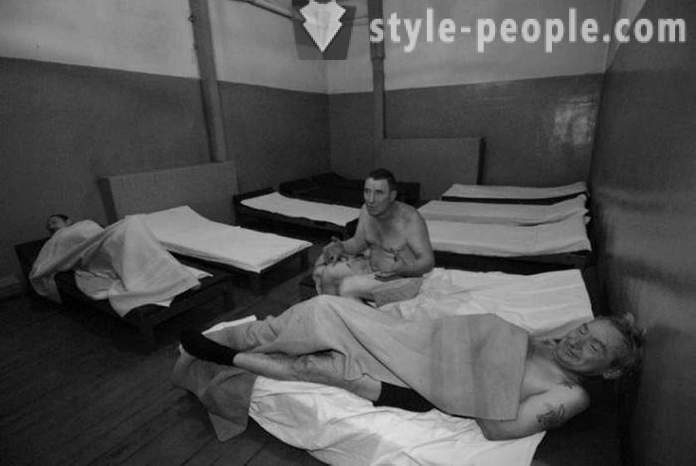
At first sobering-up stations supervised by the People's Commissariat of Health, and worked in their physicians only. They have all the details of the treatment of contingent did not know, so sometimes appeared comical situations. For example, it was not very clear what to do with the confiscated alcohol. Most often, the morning returned unfinished violator of the public peace, and he went to finish the job. Things got much worse when in 1940, Lavrenty Beria's personal decree translated sobering-up stations in the NKVD obedience and duty they began to suffer, and the police, and not just medical assistants. Yerevan - the only major Soviet city, which did not open any detox. they did not exist in Armenia. In all other parts of the country have organized one specialized agency of 150-200 thousand people.
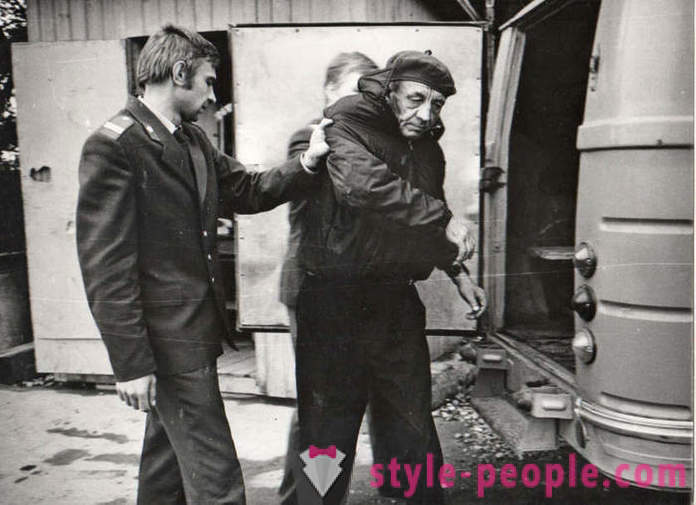
As with any other organization, each detox plan was. Therefore, the end of the quarter of men in the form of duty in almost all urban dance floors and popular restaurants. And in the paddy wagon could easily turn out to be, even if the missed no more than 2-3 drinks. For help in catching drunks used to ... a prize vouchers deficit alcohol. During Gorbachev's anti-alcohol campaign in Moscow one year after sobering-up stations took place more than 300 thousand people. But the major achievements in the war against drinking it did not bring.
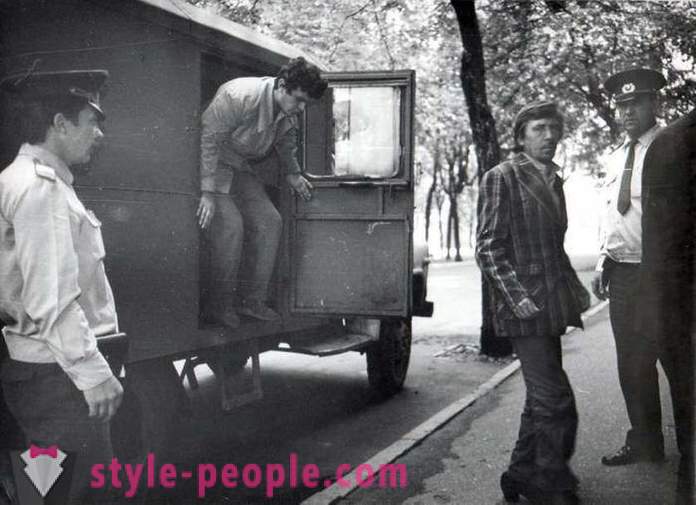
We all arrived to take money and documents, photographing, recording personal data, fixed the degree of intoxication. This was followed by an unceremonious strip and cold shower. Those who could not calm down, tied to their beds. The next morning, after a wake-up, the duty to determine the identity of citizens, who on the eve of a personal statement currently report could not, as a paramedic spent re-examination. After that, the guests wrote out a receipt for services rendered (in the Brezhnev era - from 10 to 25 rubles) and sent on all four sides.
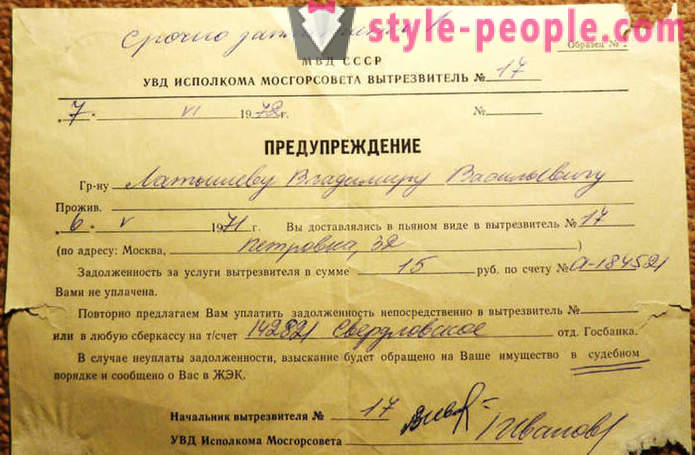
The prevention of evasion of detox services.
Signal that a worker or a student spent a night in the drunk tank, I went at the place of work or study immediately. This was followed by a party "study" and a severe reprimand. Over students is threatened deductions and working people could lose their bonuses fall out of line for an apartment or to forget about the preferential ticket to the sea.
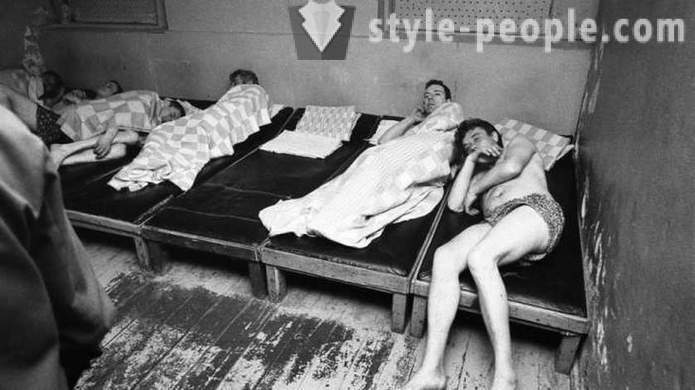
The sobering-up stations did not take minors, the disabled and pregnant women. Drunken military handed over to the office. The only category of citizens that when it detects in an indecent state dovozili home and gave relatives, were gentlemen of higher orders and Heroes of the Soviet Union. Alcoholics-order bearers, it was thought, had to treat their relatives.
